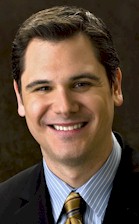

The hospitality industry is in the business of making people feel at home when they're away from home. The employees decide whether the guests have a positive or negative experience and, either way, those guests will talk about it. That is why it is so critical that hotels and lodging facilities take measures today to ensure that they have those top performers on staff that will provide guests with an optimum experience and keep them coming back. According to a recent nationwide survey from CareerBuilder.com, nearly six-in-ten hospitality workers say they plan to leave their current jobs in pursuit of better opportunities by the end of 2005. To better understand the impetus behind this wake-up call for employers, let's take a closer look at what factors are driving dissatisfaction with their current positions. READ MORE








